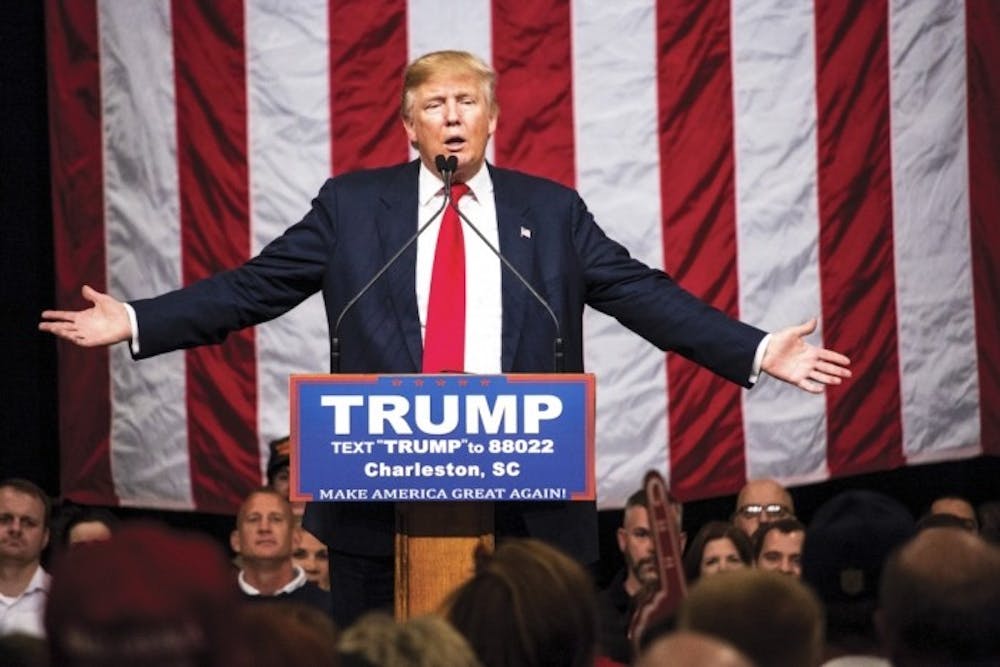President Donald Trump's White House has sparred with porn stars, actors, and even his own Saturday Night Live impersonator. Now, the president is fighting with economists from his own alma mater.
Earlier this month, the team of economists behind the Penn Wharton Budget Model became the latest target of Trump's ire when the nonpartisan research initiative unexpectedly found itself in an online back-and-forth with the White House over the group's analysis of Trump's infrastructure plan.
Trump unveiled his long-awaited plan on Feb. 12 after repeatedly emphasizing infrastructure as a major priority for his administration. The proposal would inject $1.5 trillion into the nation's roads, bridges, and other forms of infrastructure.
Ten days later, PWBM released its analysis of the plan, concluding that it would spur only an additional $30 billion in spending by non-federal agents and have "little to no impact on the economy."
Transportation Secretary Elaine Chao was questioned in a Senate subcommittee hearing about the team's criticisms on March 1. A day later, the White House released a formal response to the report, which said, "the Penn-Wharton study does not actually model nor even resemble the President’s proposed framework.”
The response went on to accuse the economists behind the budget model of bias.
"The model is also not transparent to the point where one cannot help but question whether the authors who produced it had any bias,” the statements read.
RELATED:
Records show that all three Trump children who went to Penn have donated to the University
How many times has Trump mentioned his Wharton education? We crunched the numbers.
Trump’s infrastructure plan claims that $200 billion in federal spending will prompt an additional $1.3 trillion in investments from state and local governments and the private sector, a conclusion the PWBM sharply disputed.
In a March 8 rebuttal, titled "Why Is the White House Challenging the Penn Wharton Budget Model?", the PWBM team stood by its original analysis.
"Despite our broad search of over two dozen published studies, we are not aware of any paper published in a leading peer-reviewed economics journal that supports the large financing multipliers suggested by the White House," the team wrote.
Kent Smetters, the PWBM faculty director who formerly served as an economist in the Congressional Budget Office, tweeted a series of responses to the White House, including the PWBM's official rebuttal.
While the PWBM has and continues to work with legislators and political organizations, this conflict marks the first time the group has received such a high-profile and official online response.
The administration may have panned the team's analysis, but Kimberly Burham, the PWBM's managing director of legislation and special projects, said the exchange is a promising start toward maintaining a meaningful dialogue with policymakers.
“It's not really discouraging to us,” she said. “I think, if anything, we’re encouraged to see the White House is paying attention to our work and that our work is important enough to merit this kind of analysis.”
Five of Trump's Cabinet secretaries spoke in front of the Senate Commerce Committee on March 14 to answer questions about the plan. Lawmakers have expressed concern about where funding for the proposal would come from and whether it places too much burden on the states.
“I think it’s realistic that something could happen that would constitute a down payment on a bigger, more robust bill,” Commerce Committee Chairman John Thune (R-S.D.) told reporters after the hearing in comments quoted by The Hill newspaper.



